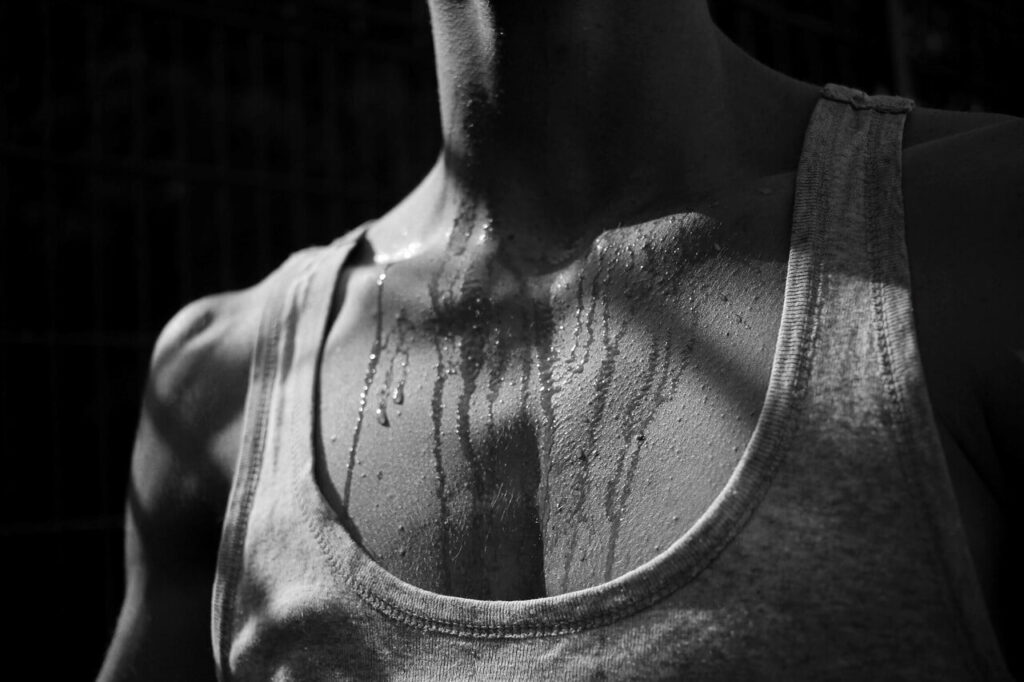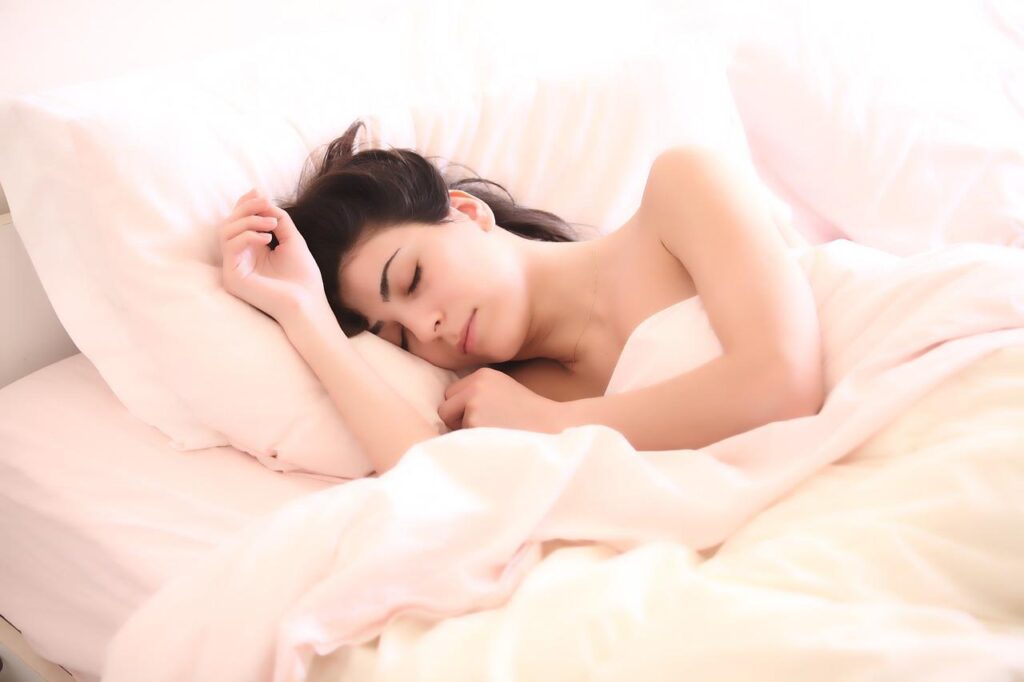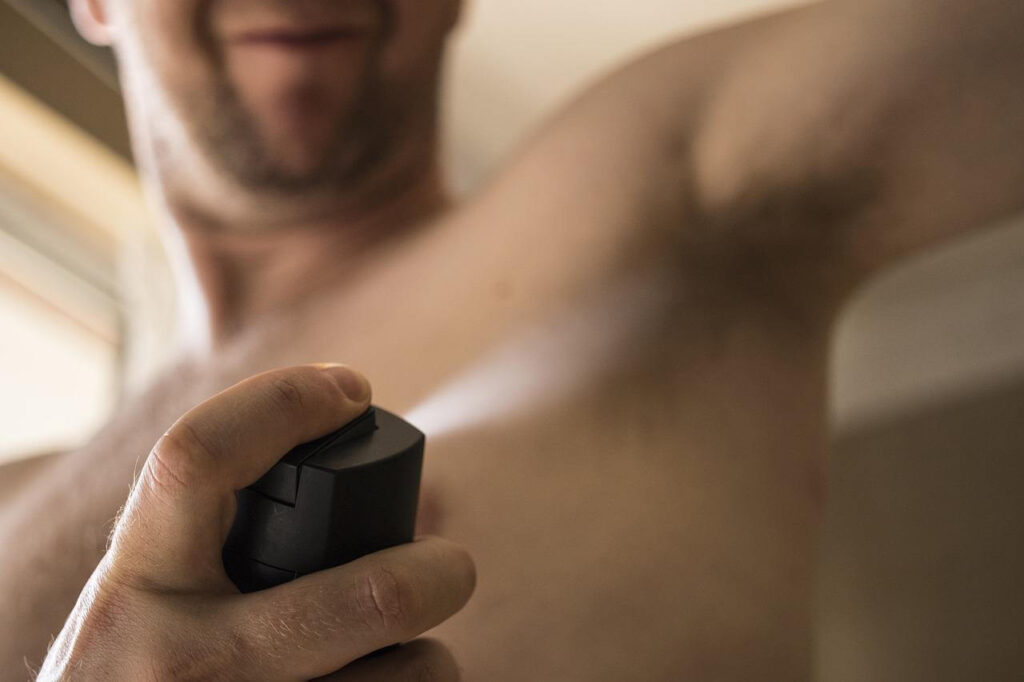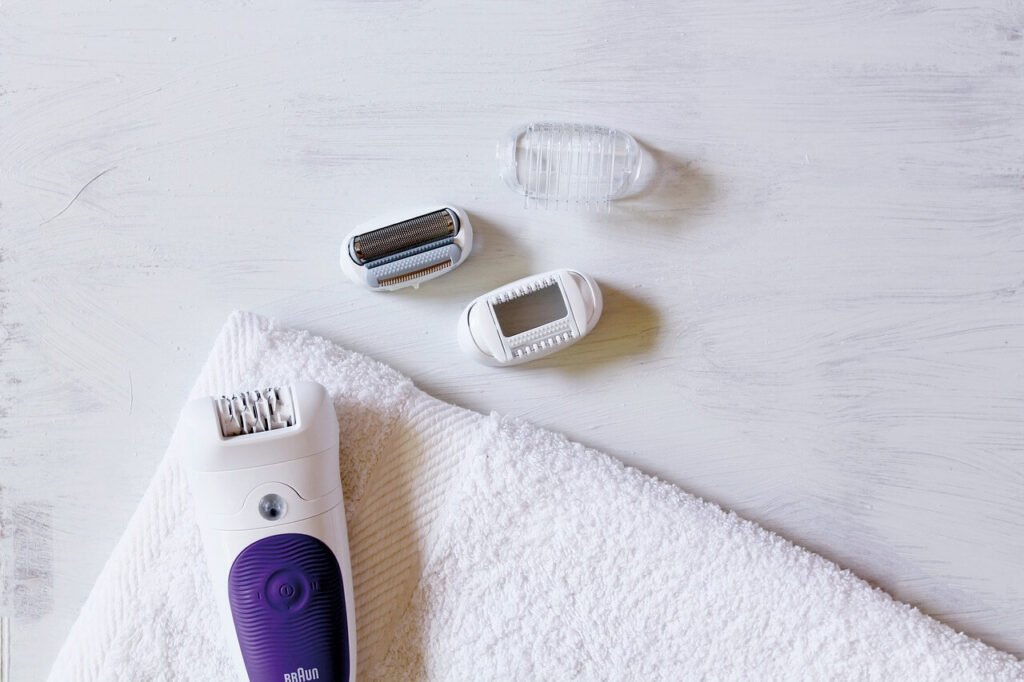Originally featured on Belle Kalista Beauty 07/2021
Confession time: I am a sweaty person.
I don’t have hyperhidrosis (a medical condition that makes you incredibly interferes-with-your-life sweaty). I just sweat more than the average girl would ever want to admit.
This means that I have tried (almost) every deodorant and antiperspirant in existence. If you had told high school me that I would one day no longer rely on antiperspirants, I would have hysterically laughed and thrown an extra stick of Clinical Strength Secret into my purse just in case.

Like most major changes in my life, my discovery that antiperspirants might be making my sweat problem worse came when I was at that hopeless, rock-bottom point of “I seriously can’t live the rest of my life like this.” (This is also how I discovered better skincare, haircare, and sports bras that didn’t give me a squished uni-boob. Ah, desperation.)
Naturally, I turned to Google, as we all do in times of crisis. And I saw multiple articles discussing how antiperspirants can worsen your sweating and body odor problems.
I will admit that many of these sites were natural deodorant sellers and “crunchy” mom blogs, which I don’t usually put a lot of stock in. But the idea stuck with me, so I decided to see if there was any truth or science behind their claims that “armpit detox” would solve my B.O. woes.
First Things First: How Antiperspirants Work
Our armpits have two types of sweat glands: eccrine and apocrine.
Eccrine glands are small and produce a kind of watery sweat that doesn’t really smell. Apocrine glands are larger and concentrated in places you usually associate with the funky sweat smell (aka your armpits and around your crotch).
Apocrine glands produce a thicker, oily sweat that mixes with your skin’s natural oils.
Fun fact: Apocrine sweat starts out odorless too. The odor comes from the bacteria that naturally live in your armpits chowing down on the sweat.
Antiperspirants work by using an aluminum-based ingredient to plug those sweat glands. Less sweat secretion = less body odor and less underarm wetness.
For some people, this works exactly as explained. They never have to deal with sweat stains or getting an unpleasant whiff of themselves in the middle of the afternoon.
But this isn’t always the case.
Why Antiperspirants Don’t Always Do the Trick
First, a lot of people don’t use antiperspirants correctly!
You’re supposed to apply a thin layer (as in, one good swipe) before bed. This is typically when you sweat the least and when your body temperature is lowest. It allows the product to get into your sweat glands to plug them up.
If you swipe on your antiperspirant after a morning shower or after you’ve already been sweating, it can’t form that sweat-blocking film that controls the wetness and funk.

Second, years of aggressively applying antiperspirant can lead to pore-clogging product buildup. This means infected hair follicles, skin irritation, and increased sweat production (the opposite of what you want!).
Third: There’s also one other thing that can happen when you use antiperspirant for a long time. The microbiome (aka the kinds of bacteria that naturally live on your skin) of your armpit can change!
For some people, antiperspirants can kill off the bacteria that don’t cause much odor and cause the smelly bacteria to increase in number. So, even if you’re objectively sweating less, your sweat might smell worse.
One quick note: Antiperspirants are not “bad” or dangerous! There’s no evidence that they cause cancer or dump toxins into your body. Lots of people happily use antiperspirants and have no problems.
The Antiperspirant Alternative
I know it’s summer for most of us, and this might not seem like the best time to stop using antiperspirants.

I’m not someone who can just use a natural deodorant and call it a day. I combine a gentle AHA or BHA with natural deodorant to keep myself smelling good.
Switching to a natural deodorant that isn’t intended to block your sweat glands can help reset your armpit microbiome to something less smelly. Combining this with an AHA or BHA’s low pH also helps keep the smellier bacteria at bay.
So, if you’re interested in going cold turkey with antiperspirants, let me give you a few tips:
1. Don’t fall for the “armpit detox.”
These are everywhere, and the concept is silly. No magical mask or cleanse will “draw out toxins” and make you smell better.
2. Do an armpit double cleanse.
Antiperspirants are formulated to be sticky, water-resistant and long-lasting. They don’t always wash off with a once-over in the shower. I double-cleansed my pits for the first several post-antiperspirant days, and I noticed a big difference in how my skin looked and felt.
Use a low-pH cleanser, too. Keeping your armpits at a nicely acidic pH helps with body odor!
3. Try going hair-free.
If you don’t typically shave or epilate, I recommend testing it out! Hair follicles can trap a lot of stuff bacteria like to feed on, worsening the odor problem.

4. Don’t fall for the “if it’s burning, it’s working!” line.
Many natural deodorants say that redness, rashes or burning sensations are common and normal for new users. Absolutely not!
If something you try makes your pits red, itchy or broken out, this is not “detox.” It’s a bad reaction. You shouldn’t try to push through or wait it out.
There are tons of different natural deodorants on the market, each with its own active ingredients. If one doesn’t work, try a different active! I had to go through a few before I found the right one.
5. Be patient.
You’re going to sweat a lot at first. And you’ll probably struggle with smelling worse than usual for a bit.
I can’t say how long it will take for your sweat production to normalize, but stick with it! I promise it will get better.
Antiperspirant 101, Done
That’s a wrap for part one of my series on switching up your deodorant game. Next up, I’ll be breaking down all the different actives that natural deos use to help with odor and wetness, so stay tuned!
In the meantime, do you have any questions or stories of your own? Commiserate with me in the comments!